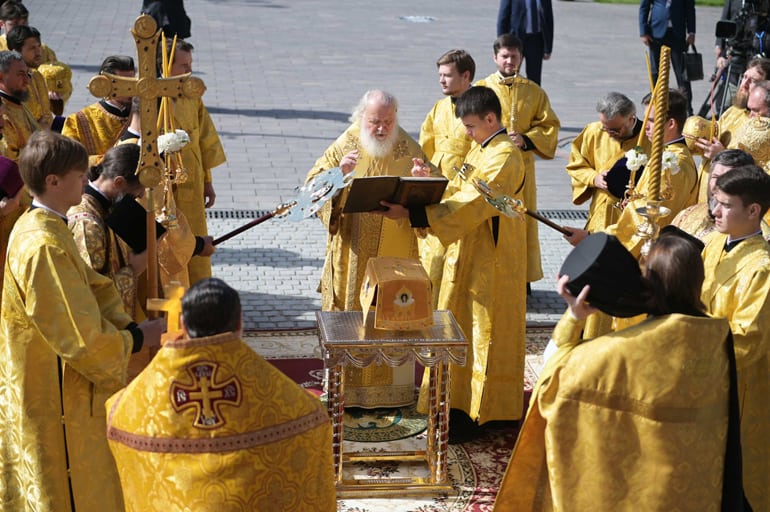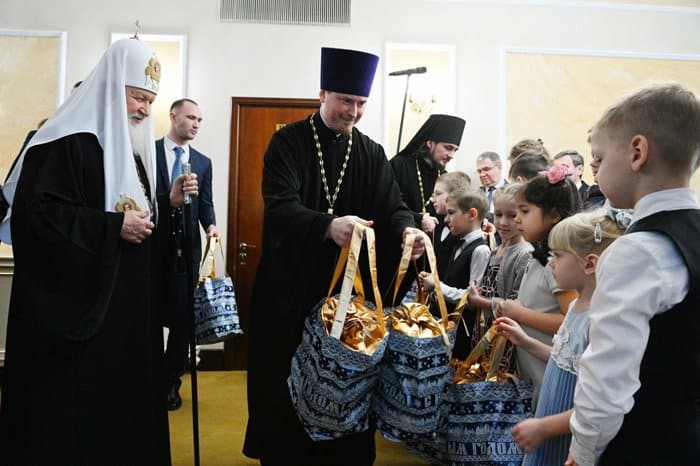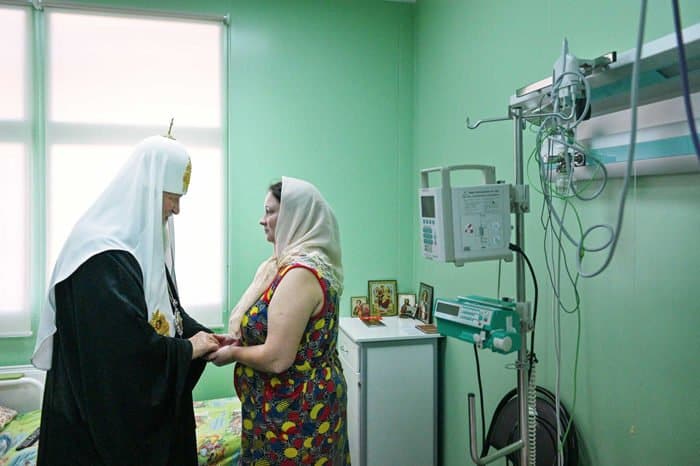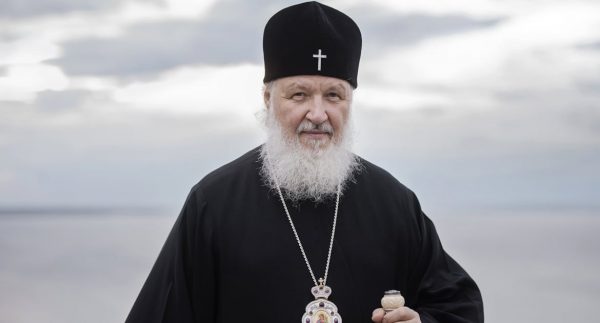His Holiness Patriarch Kirill of Moscow and All Russia celebrates his 75th birthday on Saturday, November 20, 2021.
The son of a priest, he himself took monastic vows at the age of 22, and already at the age of 29 he was ordained a bishop.
In January 2009, the Local Council of the Russian Orthodox Church elected Metropolitan Kirill the Patriarch of Moscow and All Russia.
“The Patriarchate is, first of all, the hardest cross. The Lord has called you to this ministry. And the service is connected with denying everything that is connected with the personal life of a person,” said the Patriarch on the day of his enthronement.

Photo: foto.patriarchia.ru
In March 2015, answering a question from a TASS correspondent about the power concentrated in the hands of the Primate of the Church, Patriarch Kirill said:
“Power can be understood as a test, as a punishment, and as a gift… Only all these interpretations are far from the Church. Not possession, but service: this is what, above all, distinguishes any authority in the Church. This is what Christ commanded to His disciples. Remember when He washed their feet and explained why He was doing this? Who wants to be the first, let him be a servant to everyone!

Photo: foto.patriarchia.ru
I perceive the service of the Patriarch as the sacrifice that can and should be offered to God and people on a daily basis. I often tell young monks that accepting the priesthood for the sake of career prospects is madness and spiritual suicide. Growth in the church hierarchy, so to speak, is an increase in sacrifice, dedication, and not at all in the possession of the privileges of superiors. But, one must understand, this sacrifice is not forced, but arbitrary, free, I will even say – joyful and grateful.
Why is the supreme administration in the Orthodox Church entrusted only to bishops who have monastic tonsure, and not to family people? It is impossible to be torn between two families – small and large, that is, the Church. This is the kind of service that requires you entirely, without being distracted by personal interests, entertainment, hobbies, and so on, which is quite acceptable in everyday life. And, by the way, one should not oppose responsibility before God and before people. A person responsible before God cannot behave irresponsibly towards people.

Photo: foto.patriarchia.ru
Of course, there is nothing higher and more responsible than standing before the Creator, but when there is faith, when there is a living sensation of God’s closeness, responsibility is transferred in a completely different way than in the coordinate system of the secularized world.
The life of the Church is saturated with the action of the Divine grace. The Church cannot exist without it. During each priestly ordination, the bishop utters very deep words of prayer: “Divine grace, always heals the weak and replenishes the dwindling…” Without this constant care for us from above, without constant correction of our inevitable mistakes and shortcomings, the Church would never stand in the unending struggle against it from both people and evil forces.”

















